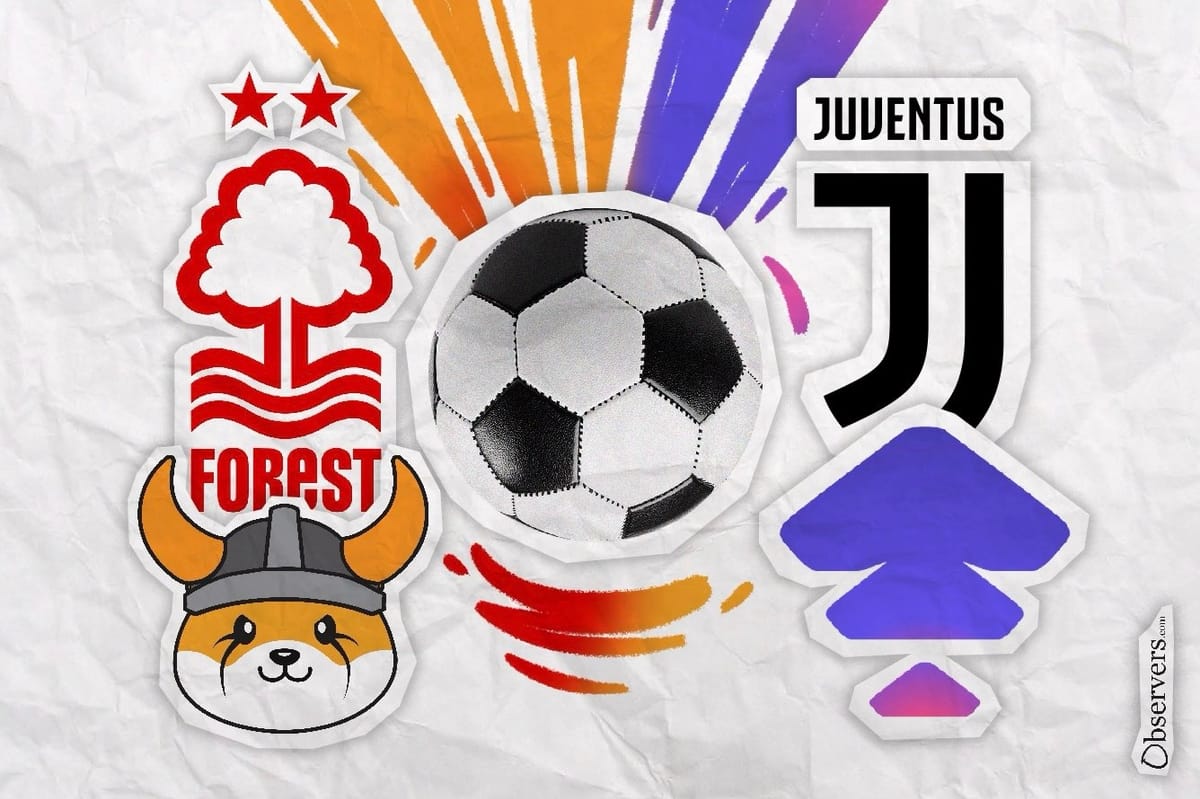
The engagement of crypto companies in European sports, especially in football, is growing, with major clubs securing sponsorships that integrate crypto brands into their identity. Football's broad appeal across different demographics and geographies allows crypto brands to connect with a diverse audience. Additionally, football fans are often highly engaged, both online and offline, making them open to new technologies. The trend, however, isn’t that popular across the U.S., apparently due to stricter regulations.
Europe
The intersection of cryptocurrency and sports is becoming increasingly prominent in Europe. International crypto companies sponsor various sports, promoting their services among spectators, and engage with their fan base through diverse Web3 experiences, including the launch of fan tokens and NFTs.
Floki Inu, a meme-inspired cryptocurrency, has strategically aligned itself with Nottingham Forest, recently becoming an official club partner of the Premier League team. The partnership aims to boost the visibility of Floki and its sister brand, the MMORPG game Valhalla, and connect with a fan base via promotions throughout the Premier League season at all home matches, potentially reaching over 2.7 billion viewers per matchday. The company will also have a strong presence on the club’s social media and will provide fans with different exclusive experiences.
In 2022, a “MISSED DOGE? GET FLOKI” advert was banned in the U.K. after a regulator concluded that it violated advertising rules. Hopefully, this time, the meme-coin has aligned its promo with the new financial promotions rules, which came into force last year.
Another example is Zondacrypto, a Poland-based crypto exchange that partnered with Juventus, one of Italy’s top football clubs, at the beginning of this year. As the official crypto exchange and sleeve sponsor, Zondacrypto’s logo appears on every photo and video of a club's shirt. The company also supports other sports. Last week, during the Tour de Pologne cycling race, a car bearing the logo of the Zondacrypto exchange piloted the riders for 1100 km.
Several other significant partnerships between crypto firms and European sports teams have been inked this year. Last week, Crypto.com became a global sponsor of the UEFA Champions League for the next three years. The exchange also continues expanding its collaboration with Paris Saint-Germain, which began in 2021. Bayern Munich, for instance, teamed up with the Austrian crypto platform BitPanda, and Manchester United expanded its multi-year partnership with Tezos, launching a Web3 fantasy football game. Meanwhile, one of the most prominent European soccer players, Cristiano Ronaldo, promotes Binance.
The United States
In contrast, crypto sponsorships in U.S. sports are less common. While some high-profile deals have occurred, such as the FTX Arena naming rights deal with the Miami Heat (which ended abruptly due to FTX's collapse) and the Crypto.com Arena in Los Angeles, these have been fewer and more tentative. We also saw that major crypto companies shunned prestigious advertising slots during the Super Bowl, the championship game of the United States National Football League, for two years in a row. Public skepticism towards cryptocurrency investments might be one of the explanations why these sports opt for other sponsors.
The cautious approach in the U.S. can also be attributed to stricter regulatory scrutiny. For example, the partnership mentioned above between Binance and Ronaldo resulted in a $1 billion class action lawsuit in the U.S. against the player. The U.S. National Basketball Association was also subjected this year to a class-action lawsuit seeking to hold it liable for marketing deals made with Voyager Digital, so other sporting bodies might prefer not to be too closely associated with the industry.

